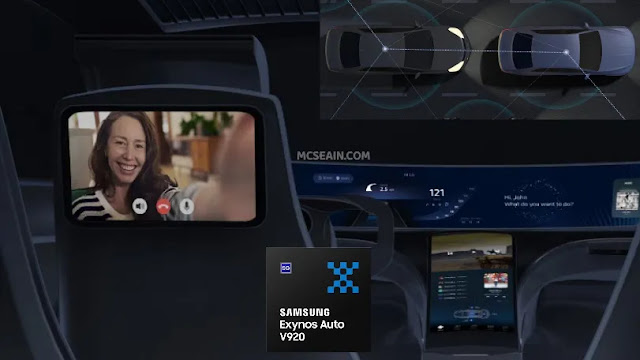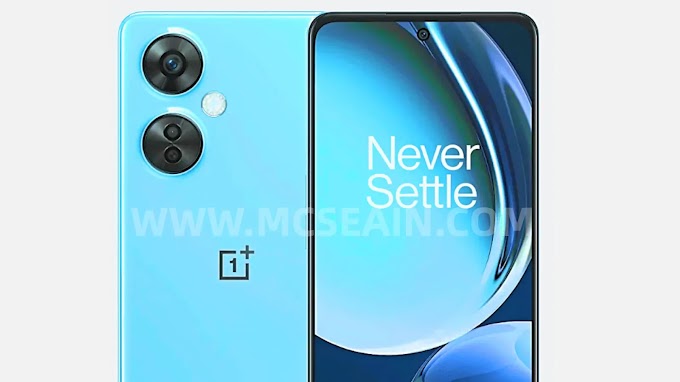Discover how Hyundai's commitment to exceptional in-car infotainment experiences has led them to collaborate with Samsung and utilize the advanced Exynos Auto V920 processor. Learn about the capabilities of this powerful processor and its potential impact on future Hyundai vehicles.
1: Advancing In-Car Infotainment with Samsung's Exynos Auto V920:
Experience the rapid evolution of in-car infotainment systems, from basic UIs to immersive, high-quality animated interfaces. While some automakers struggle to catch up, Hyundai Group has embraced the importance of top-notch infotainment. Explore how their latest electric vehicles, including the Ioniq 6, Kia EV9, and Genesis GV60, offer exceptional user experiences with intuitive interfaces and impressive graphics.
2: A New Partnership and Future Innovations:
Hyundai has recently announced a groundbreaking collaboration with Samsung, marking their entry into the automotive sector. Their first joint endeavour involves integrating Samsung's latest Exynos Auto V920 processor into Hyundai's upcoming infotainment systems, set to hit the market in 2025. Delve into the significance of this partnership and the potential advancements it brings.
3: Unveiling the Power of Exynos Auto V920:
Discover the remarkable features of Samsung's Exynos Auto V920, the third-generation processor dedicated to in-vehicle infotainment. With a substantial boost in CPU, graphics, and neural processing capabilities, this optimized processor offers unparalleled performance. Samsung guarantees seamless delivery of driving information and multi-screen support for high-quality content.
Explore the technical aspects of Exynos V920, including its 10 Arm cores with 1.7 times greater performance, support for faster memory speeds through LPDDR5 standard, management of multiple displays and cameras, improved AI performance, and integrated GPU cores for enhanced graphical experiences. Highlight the new integrated NPU and its impact on driver monitoring and safety, with improved accuracy in detecting fatigue or distraction.
4: Balancing Performance and Security:
While improved infotainment is crucial, emphasize the importance of security in modern vehicles. Discuss recent hacking incidents and the need for robust security measures. Highlight the fail-safe feature of the V920 processor, which ensures real-time fault management and system security.
Conclusion: Hyundai's collaboration with Samsung to incorporate the Exynos Auto V920 processor in their next-generation infotainment systems demonstrates their commitment to delivering cutting-edge technology and exceptional user experiences. By harnessing the power of the V920, Hyundai aims to provide drivers with advanced functionality, stunning graphics, and enhanced safety features. Stay tuned for Hyundai's upcoming releases featuring this remarkable collaboration between two industry leaders.
FAQs:
1. What is the Exynos Auto V920 processor?
The Exynos Auto V920 is Samsung's third-generation automotive processor designed specifically for in-vehicle infotainment systems. It offers improved CPU, graphics, and neural processing performance, delivering enhanced functionality and a superior user experience.
2. How will the Exynos V920 processor benefit Hyundai's next-generation infotainment systems?
The Exynos V920 processor brings next-level performance to Hyundai's infotainment systems. It ensures flawless delivery of driving information and supports multi-screen capabilities for high-quality content display. The processor's improved AI performance, integrated GPU cores, and optimized interface enhance visual presentation and offer a rich graphical experience.
3. What are the key features of the Exynos Auto V920 processor?
The V920 processor is built on 10 Arm cores with 1.7 times greater performance than the previous generation. It is optimized for autonomous driving and supports faster memory speeds through the LPDDR5 standard. The processor can manage up to six high-definition displays and up to 12 cameras simultaneously. Additionally, it features an integrated NPU for enhanced driver monitoring and a fail-safe mechanism for real-time fault management and system security.
4. When will the first vehicles featuring the Exynos Auto V920 processor be available?
Hyundai plans to incorporate the Exynos Auto V920 processor into their next-generation infotainment systems, with the first results expected to hit the market in 2025.
5. How does Hyundai prioritize security in its infotainment systems?
While improved infotainment is a significant selling point, Hyundai recognizes the importance of security in modern vehicles. They aim to address potential security concerns by leveraging the fail-safe mechanism offered by the Exynos V920 processor. This embedded safety island manages faults in real-time, ensuring the in-vehicle infotainment system remains secure.






